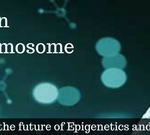Columbia researchers develop kidney disease-spotting algorithm
As many as nine in 10 adults do not know they have chronic kidney disease, which can put them at risk for developing complications.
Researchers at Columbia University Vagelos College of Physicians and Surgeons have developed an algorithm that automatically scours electronic health records to alert physicians to early-stage chronic kidney disease.
The algorithm searches EHRs for results of blood and urine tests before performing calculations to indicate kidney function and damage and alerting clinicians.
“Identifying kidney disease early is of paramount importance, because we have treatments that can slow disease progression before the damage becomes irreversible,” said study leader Dr. Krzysztof Kiryluk, associate professor of medicine, in a statement to press.
More than one in seven adults is estimated to have chronic kidney disease, according to the U.S. Centers for Disease Control and Prevention, but as many as 90% don’t know they have it.
This can be a problem, as Kiryluk said, because early detection and treatment of CKD can prevent symptoms from worsening.
CKD is also more prevalent in Black and Latinx Americans than white Americans, making early detection an equity issue as well.
The reasons for under-diagnosis, notes the Columbia press release, are complex. Clinicians may not prioritize the necessary tests for diagnosis when it comes to asymptomatic patients, for example.
In addition, the interpretation for those necessary tests – one that measures a kidney-filtered metabolite in blood and another that measures leakage of protein in urine – can be challenging.
“Many patient characteristics, including age, sex, body mass or nutritional status, need to be considered, and this is frequently underappreciated by primary care physicians,” said Kiryluk.
Hence the Columbia algorithm, which was published in npj Digital Medicine earlier this month.
Researchers manually validated the algorithm with 451 chart reviews across three medical systems, and found that it diagnosed nephrologist-identified kidney disease correctly in 95% of patients, and ruled out kidney disease accurately in 97% of healthy patients.
“To assure transferability across different EHR systems, our algorithm was developed using training and validation datasets across several institutions,” according to the study.
The researchers proposed that the algorithmic diagnosis could enhance clinical care by enhancing patient and physician awareness of the disease and by enabling stage-specific recommendations for complication management.
“Although conceptually simple, our algorithm overcomes several important practical challenges stemming from real-life limitations of EHR data,” they wrote.
Despite kidney disease’s prevalence, technology to treat it has not meaningfully improved over the last few decades.
Public and private stakeholders are seeking to change that. The U.S. Department of Health and Human Services and the American Society of Nephrology have launched several prizes aimed at spurring kidney care innovation.
“Chronic kidney disease can cause multiple serious problems, including heart disease, anemia or bone disease, and can lead to an early death, but its early stages are frequently under-recognized and undertreated,” said Kiryluk.
























